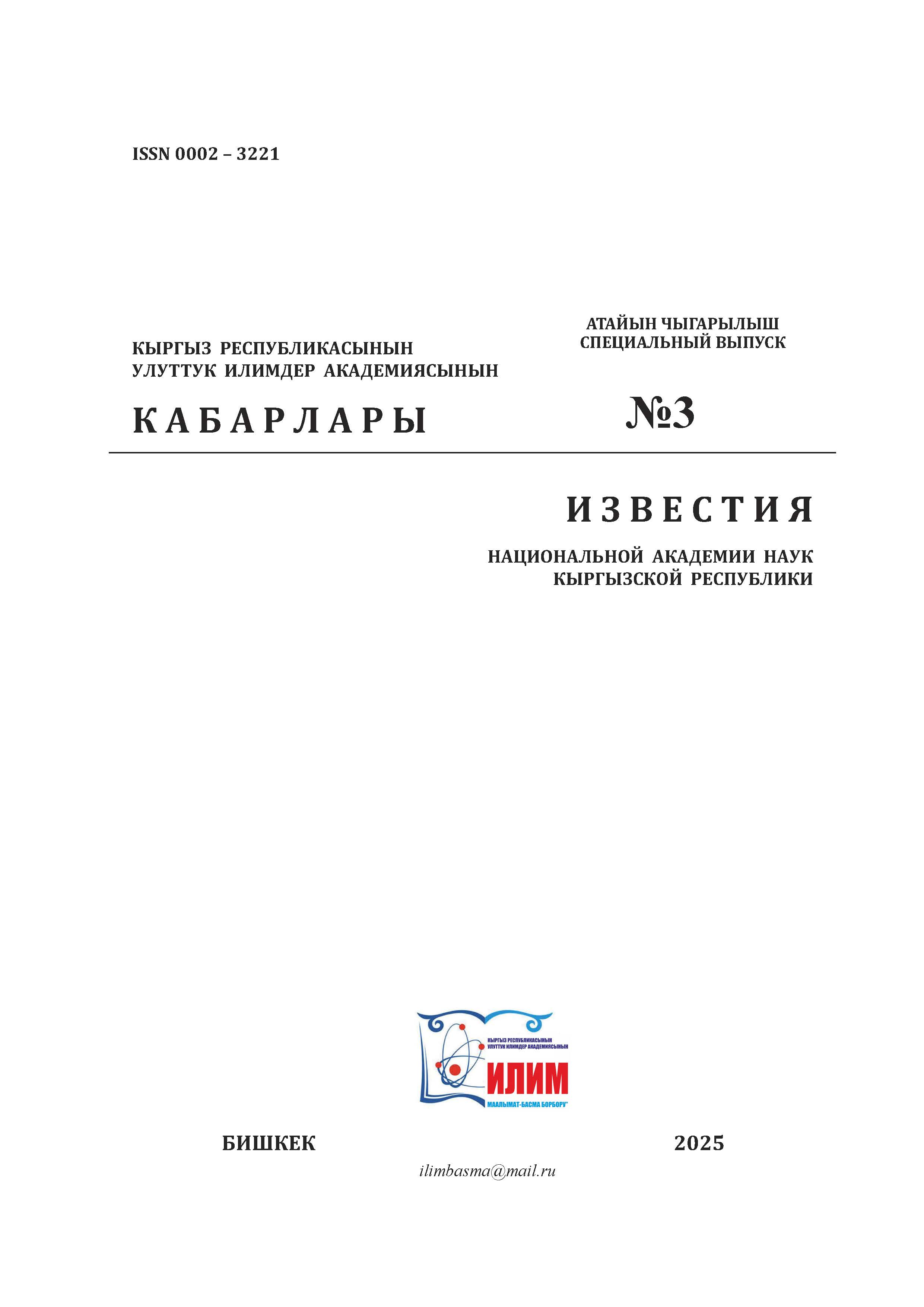THE IMPACT OF CLIMATE CHANGE ON THE ECONOMY AND AGRICULTURE OF THE KYRGYZ REPUBLIC
Keywords:
-Abstract
This article explores the impact of climate change on the economy and agriculture of the Kyrgyz Republic. The study is based on data collected within the framework of the 2023 project “Climate Justice,” implemented by a group of experts under the author’s leadership. The research employed a specially developed scientific methodology that has no previous analogs in the country. Additionally, the analytical framework incorporated a set of key climate change indicators proposed by the UNECE Task Force on Climate Change-Related Statistics. This allowed for the identification of stable correlations between climate change and its socio-economic consequences in Kyrgyzstan. Climate change exerts a multifaceted influence on the agricultural sector and the economic well-being of vulnerable population groups. Notable negative consequences include the growing frequency of natural disasters, diminishing water resources, degradation of agricultural land, reduced crop yields, and increasing social tensions caused by competition for limited resources—particularly irrigation water. A survey conducted in four pilot regions (the Altyn-Kazyk residential area in Bishkek, Toguz-Bulak in Batken region, Chon-Sary-Oy in Issyk-Kul region, and Bash-Kayyndy in Naryn region) involved 711 respondents and revealed region-specific changes linked to climate impacts. Approximately 80% of rural respondents reported a deterioration in the quality of arable land, especially in Batken region. With regard to irrigation, over 74% of respondents in rural areas noted a significant reduction in the availability of irrigation water over the past decade, reaching 84.7% in Batken. The most noticeable losses of natural vegetation, including pastures and forested land, were observed in Issyk-Kul region, where 57.8% of respondents reported significant reductions. Conversely, in most other regions, no significant increase in damage to public infrastructure from climate-related emergencies was observed, with the exception of Issyk-Kul, where nearly half of respondents reported increased infrastructure damage. Particular attention is paid to rising household expenditures on space heating. Despite climate
warming, most respondents noted an increase in energy costs. This may be attributed to reduced access to traditional energy sources, extended heating periods, or other socio-economic factors. The article concludes with policy recommendations, including substantial investment in modern irrigation systems, construction of reservoirs and lined canals, support for a transition to drought-resistant crops and climate-resilient livestock breeding, expansion of agrochemical laboratories, and
the implementation of soil testing to enable scientifically based fertilization practices. Additionally, the restoration of protective forest belts and enhancement of local governance capacity for resource management are emphasized. Overall, the findings underscore the urgent need for systemic adaptation of the agricultural sector and water resource management in response to climate change. Ensuring sustainable development and food security in the Kyrgyz Republic requires coordinated policy actions, community engagement, and investment in climate resilience.
References
-

